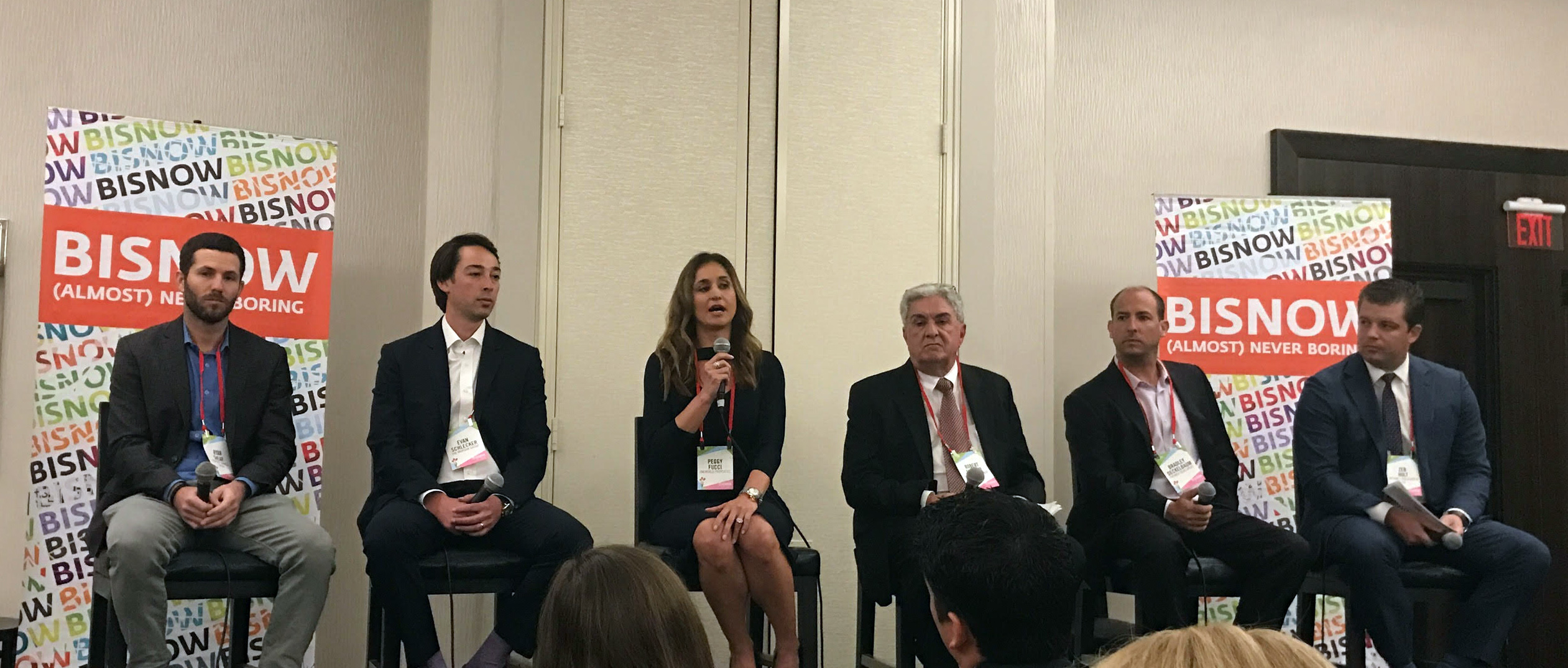Trending
Fort Lauderdale real estate still has plenty of upside potential: panel

Fort Lauderdale real estate markets have been improving for almost a decade but still have ample upside potential, developers and other real estate professionals said at a conference Tuesday.

From left: Ryan Shear, Evan Scheckler, Peggy Fucci, Robert Shapiro, Bradley Deckelbaum, Zeb Holt (Credit: Levy PR)
“Fort Lauderdale is virtually underdeveloped, in my opinion,” said Jimmy Tate, CEO of Tate Capital, which owns the Bahia Mar resort hotel on Fort Lauderdale Beach together with other investors.
“I think this market still has legs,” said Harvey Hernandez, CEO of Newgard Development Group, one of the companies behind the development of the Gale Residences Fort Lauderdale Beach. For example, “I think there’s still a lot of opportunity on the condo side” of the market, he said.
“For the most part, money is chasing deals,” not the other way around, said Nicole Shiman, a Miami-based vice president of Edens, a real estate investment trust that invests in retail properties. “It’s still bullish, for sure.”
They spoke as panelists during a conference at the Marriott Harbor Beach Resort & Spa on Fort Lauderdale Beach organized by Bisnow Media.
Fort Lauderdale Mayor John Seiler, the first speaker at the Bisnow event, said the city’s employment growth and low property taxes are supporting its real estate markets.
“We are leading this state in job creation,” Seiler said. The Fort Lauderdale area now has a 4.4 percent unemployment rate, lower than the rate in metropolitan Miami, the West Palm Beach area, the state and the nation.
The mayor also said Fort Lauderdale’s millage rate for property tax assessments, 4.111 percent, is the lowest among the 25 largest cities in Florida. “We believe that is a huge incentive for people to invest in the city,” he said.
Several speakers said real estate prices are so high in the Miami area that Fort Lauderdale is a relative bargain.
Patrick Campbell, a vice president at the Related Group, said condo prices at the company’s Auberge Beach Residences & Spa development are averaging $1,100 per square foot, compared to $3,000 per square foot for new condos in South Beach.
“At Auberge, we’ve sold $54 million of inventory in the past 45 days,” Campbell said.
Foreign investors have played a big role in the Miami condo market and have emerged as an important element of the Fort Lauderdale condo market, too, said Peggy Fucci, CEO of brokerage firm OneWorld Properties.
For example, at the Paramount Fort Lauderdale Beach condominium development, “25 percent of our buyers are international,” Fucci said.
Mixed-use developments where people can live, work and play are proliferating in Fort Lauderdale, and the trend has implications for all classes of real estate, said Robert Shapiro, president of Master Development, one of the companies behind the Dania Pointe development on a site along I-95 where a wooden roller coaster once stood.
Shapiro said Dania Pointe will have 800,000 square feet to 900,000 square feet of retail space occupied mostly by tenants that provide food and entertainment, including 20 to 25 restaurants.
Dania Pointe also will have three “entertainment plazas” and an event schedule intended to turn the mixed-use development into a pedestrian hangout. “We plan to have 200 to 300 events a year,” he said.
Shiman said owners of shopping centers generally are expected to recruit more restaurants and other “leisure” tenants, increasing their share of shopping center space from the current level of about 25 percent to 50 percent in the years ahead.
Shiman said the growth of online shopping is driving that trend. “The only reason to leave your home now is if you’re doing something more than a transaction,” she said. “Millennials actually prefer to spend money on experiences rather than accumulating goods.”
Hernandez said that trend is also shaping residential real estate development: “Buyers are not really buying real estate so much as they are buying experiences.”




